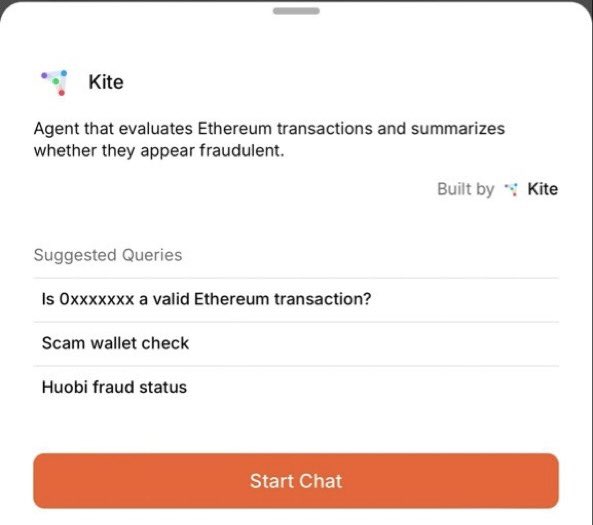
Unveiling Undercover IRIS: Ethereum’s First Virtual Audit Agent with Liquidity Pool
The blockchain and decentralized finance (DeFi) spaces have long aspired to automate and democratize security audits, a crucial yet resource-intensive step in smart contract deployment. June 2025 marks a notable milestone: the launch of Undercover IRIS, the first virtual audit agent deployed on the Ethereum Mainnet, complete with its own liquidity pool. Developed primarily for developers and powered by AuditAgent—a platform backed by Nethermind, a recognized Ethereum client team—IRIS promises to revolutionize smart contract security by making audits autonomous, real-time, and publicly accessible.
This report dissects IRIS’s key features, implications for the ecosystem, technological architecture, and future potential.
—
Setting the Stage: Why Automated Smart Contract Audits Matter
Cryptocurrency and decentralized applications rely heavily on smart contracts to execute code without intermediaries. However, vulnerabilities in contracts often lead to disastrous financial losses, hacks, or frozen assets. Traditionally, smart contract audits are manual, time-consuming, expensive, and accessible primarily to well-funded projects. This creates a bottleneck that slows innovation and leaves smaller developers exposed.
Automating audits via AI agents like IRIS is a tremendous leap forward. It means continuous security monitoring, instant reports, and reduced operational costs. More importantly, by deploying IRIS as an autonomous, open agent on Ethereum, the technology invites community trust and open scrutiny rather than hidden black-box checks.
—
What is Undercover IRIS? A Closer Look
Autonomous Virtual Audit Agent
IRIS is essentially a decentralized bot running on Ethereum that autonomously scans, analyzes, and audits smart contracts. It is powered by AuditAgent, a platform designed to detect vulnerabilities in code by leveraging advanced static and dynamic analysis algorithms.
Liquidity Pool Integration
Unlike a mere software tool, IRIS is paired with a liquidity pool on Ethereum’s mainnet. This means users can interact with or stake assets related to IRIS, fueling its operation economically and potentially unlocking DeFi incentives. This feature uniquely blends security assurance with tokenomics, encouraging community participation in audit governance and sustainability.
Real-Time Insights & Monitoring
IRIS doesn’t just perform point-in-time audits. By monitoring blockchain activity and off-chain conversations, it provides real-time insights about contract behavior and emerging risks. This level of continuous diligence is critical for spotting vulnerabilities that only manifest under specific conditions, giving developers proactive warnings.
—
Key Features and Functional Benefits
1. Automated Smart Contract Security Scans
IRIS utilizes AuditAgent technology to systematically scan contracts for a broad spectrum of known vulnerabilities—ranging from reentrancy and gas limit issues to logic flaws and improper permission controls. This automated scanning cuts audit turnaround from weeks to potentially minutes or hours.
2. Open and Public Good Orientation
By positioning itself as a public-good infrastructure, IRIS aligns with Ethereum’s ethos of decentralization and public utility. Developers anywhere can access audit results without barriers, democratizing security and raising the general quality of contract deployments.
3. Developer-Focused Design
From user interface to integration capabilities, IRIS is built with developers in mind. It plugs directly into typical development pipelines and tooling, making it straightforward to adopt without heavy onboarding.
4. Economic Incentives via Liquidity Pools
The inclusion of an Ethereum-based liquidity pool suggests that stakeholders can contribute capital to support IRIS operations or earn returns. This DeFi integration could underpin the agent’s autonomy and independence, fostering a self-sustaining ecosystem around security auditing.
—
Architectural Landscape: How IRIS Works Internally
At its core, IRIS merges multiple blockchain and AI components:
– AuditAgent Platform: The analytic engine reviewing smart contracts, blending static code analysis with behavioral simulations.
– Ethereum Mainnet Deployment: The smart contracts that encapsulate IRIS’s logic and liquidity pool functions, ensuring transparency and trust.
– Real-Time Data Feeds: Integration with Ethereum blockchain logs and possibly off-chain sources to monitor contract interactions continuously.
– Governance Model: Token holders or liquidity providers may gain influence over updates or operational parameters, embedding decentralized control.
The seamless synergy between these elements empowers IRIS to provide instant, autonomous auditing as a reliable public service.
—
Impact on the Ethereum Ecosystem
Enhancing Security Posture
With IRIS actively scanning contracts before and after deployment, the likelihood of security incidents reduces drastically. Early vulnerability detection saves millions in losses and builds consumer confidence in smart contract platforms.
Democratizing Access to Security
Independent developers, startups, and smaller projects that often lacked budget for professional audits gain access to trustworthy evaluations. This levels the playing field and spurs innovation without compromising safety.
Incentivizing Continuous Improvement Through Markets
By linking security audits with liquidity pools, IRIS introduces a unique economic mechanism for continuous funding and community engagement. It also opens paths for investors and developers to collaboratively support and improve public audit infrastructure.
—
Challenges and Considerations
While IRIS’s launch is groundbreaking, several challenges remain:
– False Positives/Negatives: Automated tools must balance sensitivity and accuracy. Over-alerting could lead to audit fatigue, while misses leave vulnerabilities unchecked.
– Liquidity and Tokenomics Dynamics: How the liquidity pool incentivizes participation without being exploited or manipulated will determine the agent’s long-term viability.
– Complexity of Smart Contract Ecosystem: As DeFi and dApp protocols evolve rapidly, audit agents must continually update detection algorithms to remain effective.
– Transparency and Trust: Operated by AuditAgent under Nethermind, IRIS must maintain open source integrity and avoid central points of failure to satisfy community scrutiny.
—
Looking Forward: The Future of Autonomous Smart Contract Auditing
IRIS signals a new era where smart contract security is not a hurdle but a seamlessly embedded feature of blockchain deployment. Its autonomous, economically incentivized model could inspire similar agents on other chains or domains beyond Ethereum.
Potential innovations include:
– Cross-chain audit agents monitoring multi-chain smart contracts.
– Integration with AI-driven bug bounty platforms creating hybrid security frameworks.
– Expanding audit scopes to include economic risk modeling and protocol governance vulnerabilities.
As smart contract complexity grows, autonomous agents like IRIS will become indispensable guardians of digital trust.
—
Closing Thoughts
Undercover IRIS, as the pioneer autonomous virtual audit agent with an integrated liquidity pool on Ethereum Mainnet, exemplifies the fusion of AI, blockchain, and DeFi to address real-world challenges innovatively. Its launch demonstrates how automation and decentralization can democratize security and align economic incentives with public good.
The implications for safer, faster, and more inclusive smart contract development on Ethereum are profound. While still nascent, IRIS’s approach outlines a path toward resilient and sustainable blockchain ecosystems, ushering developers and users into a future where security assurance is automatic, collective, and transparent.
—
Sources
– Undercover IRIS announcement by pg on Twitter
– J3l33l.eth introduction of IRIS on Twitter
– Nethermind official site
– Ethereum Mainnet documentation
*(All links open in new tabs)*








